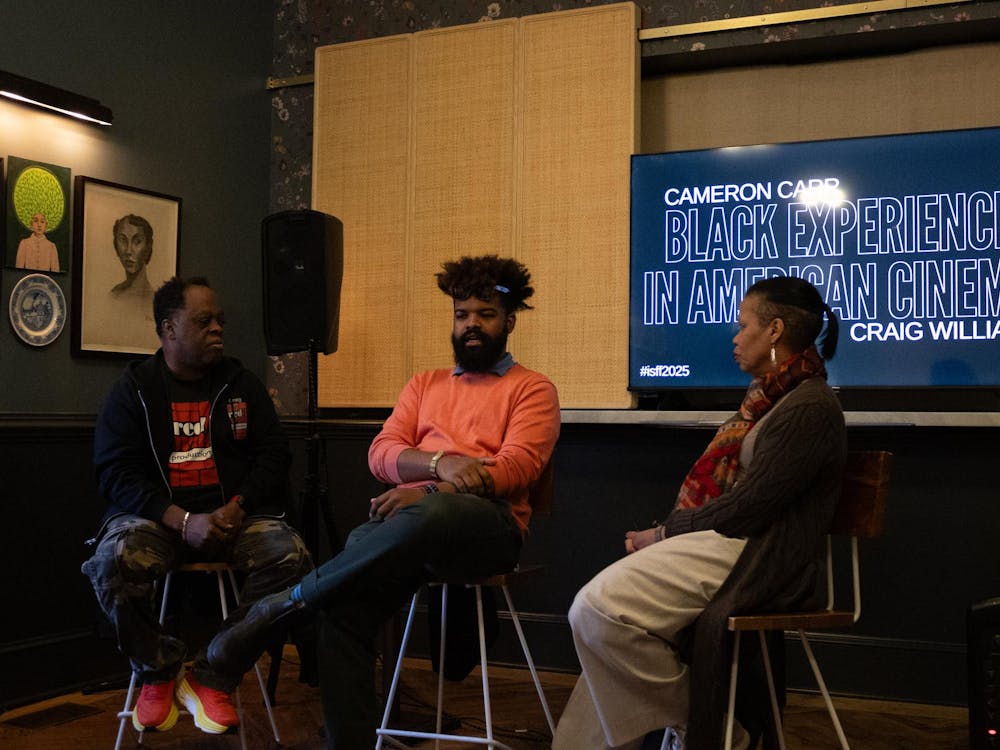In most English literature classes, students are asked to determine a novel’s ultimate takeaway by analyzing the author’s diction, characters and as many subtle details as a discerning eye can catch. It’s enough to drive a student crazy — any object can be symbolic, and any small line may be foreshadowing.
At book readings, however, such minutiae become less relevant. Not only can students speak with the crafters themselves, but they can gain a deeper insight from an author’s pauses and changing tones than could be realized from even a careful reading of the text.
This past Wednesday, short story writer and novelist Lauren Groff performed a book reading at the University Bookstore. Presented by the English department, these readings bring a wide variety of authors to showcase their work throughout the year.
Groff’s reading was unfortunately rather under-publicized, and the event only drew about 40 people, many of whom were English students there with their class. Nevertheless, the reading offered audience members an invaluable insight into Groff’s work and her writing process.
Groff attended Amherst College as an undergraduate and obtained a graduate degree from the University of Wisconsin-Madison. She has received several prestigious fellowships, including the Axton Fellowship in Fiction at the University of Louisville and at Yaddo, and has since been published in several journals, including twice in the Best American Short anthology. First published in 2008, Groff has written two novels along with a collection of short stories.
Groff wrote her latest novel, “Arcadia,” while she was pregnant. Groff told to her audience Wednesday that the gloominess which accompanies each of her pregnancies leads to a renewed interest in the concept of happiness. This time, Groff found herself captivated by the idea of communes — destinations for people who intentionally leave established society to start another life better governed by some conception of happiness. She visited several of these locations and interviewed more than 200 people in her research, ultimately using these experiences for much of her new book.
Groff read two excerpts at her reading — one, a new short story called “Jane le Bishe,” or “Jane the Doe,” and the other from “Arcadia.”
“Jane le Bishe” was a interesting story about an overweight girl who returns home from Paris and runs away. Though there were many subplots, I couldn’t discern any overarching plot or finite conclusion — many events seemed disconnected and random. And, though the abundance of details created vivid imagery, some of the descriptions seemed forced and fake, as if little thought went into the content of the excessive detail.
The “Arcadia” excerpt was similar — though the plot undoubtedly made more sense in context with the rest of the book. However, though neither excerpt was particularly engaging, the reading itself was an enlightening experience.
Groff concluded with an interesting childhood anecdote. She once thought she glimpsed a monster in the lake in which she was swimming and, to this day, still isn’t sure if it was there — and she doesn’t really care.
“I believe in the mystery,” she said. “I love the mystery.”
The next public reading offered by the English Department will be Feb. 20 by poet Terrance Hayes.






